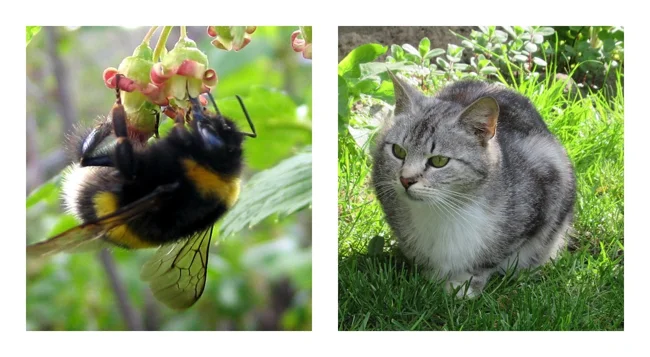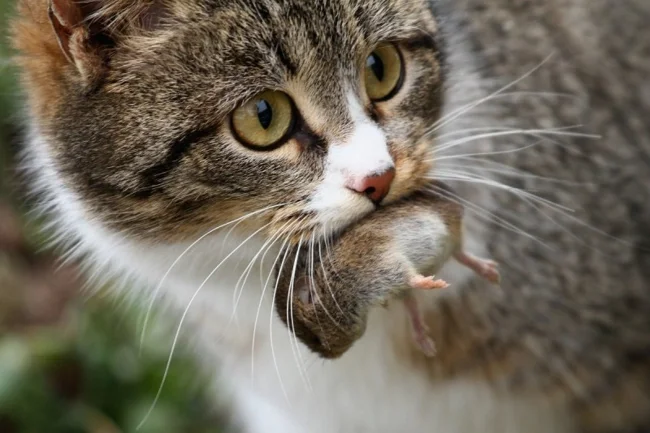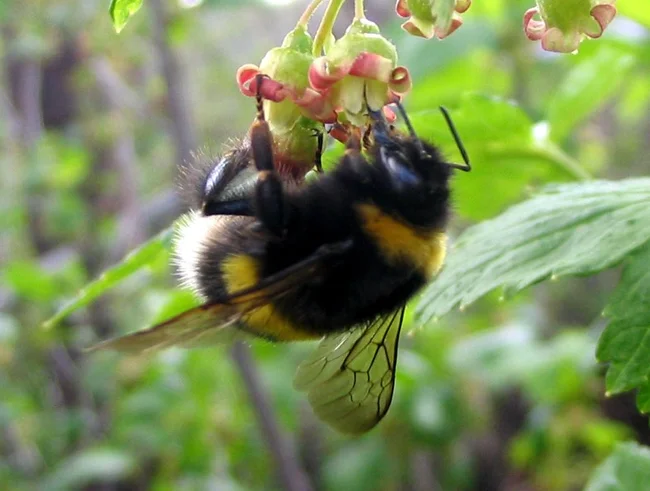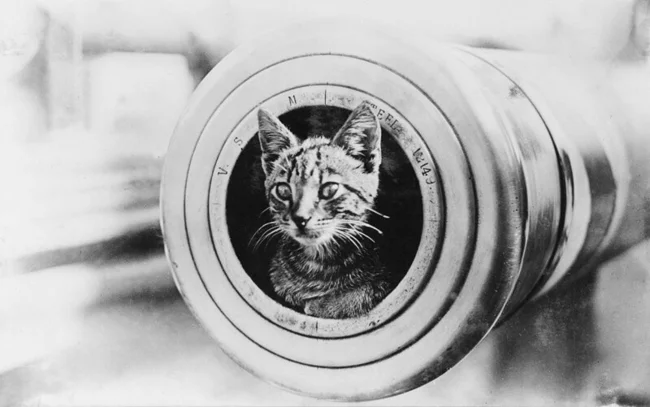Darwin, in his book "The Origin of Species" in the third chapter gives an amazing example of interspecific relationships. This example is crucial for understanding both the connections between species and how difficult it can be to imagine the full consequences of interfering with these relationships. 
It is difficult to imagine animals more distant from each other than a cat and a bumblebee. Meanwhile, the connections that hold them together, even if imperceptible at first glance, are so close that if you touch them, the consequences can be incredibly numerous and significant. Mice, Darwin claims, are one of the main enemies of bumblebees, devouring their larvae and destroying their nests. On the other hand, as everyone knows, mice are the favorite prey of cats. One consequence of this fact is that near those villages in which there are more cats, fewer mice and more bumblebees are found. Is everything clear yet? Okay, let's continue. 
Bumblebees are the main pollinators for many plant species, and it is common knowledge that the larger and better the flowers are pollinated, the more seeds the plant produces. The quantity and quality of seeds determines the greater or lesser number of insects, which, in turn, are the main food for numerous bird populations. Continue this way for several hours in a row, adding more and more new groups of creatures: bacteria, fungi, cereals, reptiles, as in the poem about the house that Jack built, in which they string one event onto another. The ecological relationships to which Darwin draws our attention indicate the existence of connections much more complex than assumed. The relationships are complex enough to connect everything to everything into a single living network. 
There is a famous story on this topic, first told by German biologists Ernst Haeckel and Karl Vogt. Its meaning is that the fate of England seems to depend on cats. The cats, by feeding on the mice, increase the chances of survival of the bumblebees, which in turn pollinate the clover, which then feeds the beef cows, which provide meat for the British sailors, allowing the British navy, which we know is the mainstay of the empire, to maintain its power. 
Huxley, developing this joke, added that the real strength of the empire was not the cats themselves, but the invincible love of English spinsters for them, thanks to which the population of these animals remained so numerous. Be that as it may, at the heart of this joke lies the simple truth that all living species are somehow related to each other in some way, overt or hidden, and a direct impact on any individual species, or even a simple change in its habitat, can have completely unexpected results. Darwin tells us that predicting the ultimate consequences of any change in these relationships is as "hopeless" as throwing up a handful of sawdust on a windy day and trying to predict where each particle will fall. History is full of attempts to change the population size or activity of individual species. Attempts that almost always ended in failure.
0 comments
